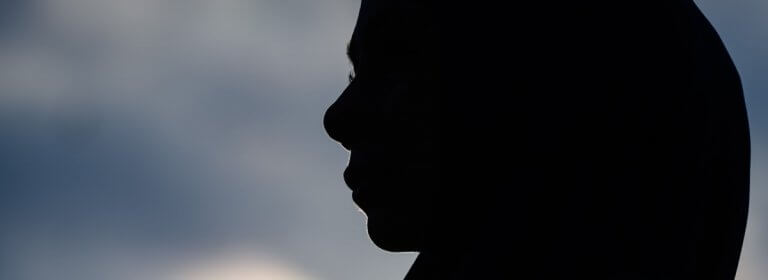
It’s hard to feel comfortable going to a place where 50 people were recently killed in a terrorist attack. It’s worse still if you’re Muslim and know the massacre targeted those of your faith.
Yet for many current and prospective students across New Zealand’s schools and universities, this is exactly what they’re going through in the aftermath of last month’s Christchurch shooting. For the more than 100,000 international students enrolled in its higher education institutions, the big question now is: is it still safe to study in New Zealand?
As the country attempts to make reparations for the injured and the families of the dead, it is, at the same time, raising important questions about safety and its openness to people of varying backgrounds.
For both aspects, it is performing admirably.
For one, there is no shortage of praise for its Prime Minister and how she responded – swiftly, courageously – during the biggest crisis to hit her political career. She banned all weapons used in the shooting in the span of one week. She donned a hijab and brought a group of politicians to meet with victims. She refused to mention the gunman’s name, denying him the fame he sought from his highly-publicised act.

New Zealand’s Prime Minister Jacinda Ardern gestures as she departs following a gathering for congregational Friday prayers and two minutes of silence for victims of the twin mosque massacre, at Hagley Park in Christchurch on March 22, 2019. Source: AFP/Marty Melville
The ban on all military-style semiautomatic and automatic weapons – parts that can be used to turn other rifles into such weapons and high-capacity ammunition magazines – was delivered within days. So did the rebuke on social media sites, and their hands-off approach to curb hate speech on their platforms. Their profits were chided in view of the minimal responsibility taken for distributing and organising the ideas and language of division and hate.
Of course, as commendable as they are, Ardern’s actions alone won’t eliminate all risks and threats in the country.
Right-wing extremism exists and the threat it poses are growing. The now exposed realities of Muslims in New Zealand, who while allowed to enter the country are told be “quiet” and “invisible”, will not be solved anytime soon. Nor will the problems circling the world’s largest social media platforms, especially in creating and reinforcing extremist (read: dangerous) beliefs.
But compare New Zealand to the US and some, if not, much relief will flood those heading to the former. In the US, mass shootings occur 11 more times more often than in other developed countries. More than 100 events in which four or more people have been killed by a lone shooter have occurred since 1966.
Despite this, the US is nowhere close to curbing gun violence, unlike New Zealand. This is the distinction that matters. In the US, regular folk can still buy weapons like the AR-15 semiautomatic rifle, the same one used in several mass killlings, thanks to a powerful gun lobby and its allies in Washington. In New Zealand, life-saving gun laws are on the way to being passed through Parliament.

A young boy inspects a firearm in an exhibit hall at the NRA’s annual convention on Saturday, May 5, 2018 in Dallas, Texas. Source: AFP/Loren Elliott
What this translates to is life-saving preventions via gun laws. Visitors and students can take refuge in the findings of a major non-partisan US study, which found that an assault weapons ban might prevent 170 mass shooting deaths a year in the US, according to best guesses by longtime gun policy experts about the impact of different laws.
But what about the other issues that had led to Christchurch? Like everyday racism, Islamophobia and hate crime? Safety isn’t just about staying alive. It’s also about being comfortable and accepted regardless of how we look. Post 9/11, New Zealand too changed its legislation and policies, which essentially branded Muslims as threats.
While the country is known for tolerance, a survey found that Muslims, as well as immigrants from Malaysia, Indonesia, Pakistan, Iraq, Afghanistan, Iran and Somalia, had favourability ratings below the midpoint of 50. Non Muslim-majority countries fared better.
International students do not live in a vacuum. All of the above affect them too.

Members of the public attend the National Remembrance Service at North Hagley Park in Christchurch on March 29, 2019. Source: AFP/STR
Prime Minister Ardern has called for a global fight against racism. “If we want to make sure globally that we are a safe and tolerant and inclusive world we cannot think about this in terms of boundaries,” she said in an interview with BBC.
It’s the right thing to say. But only time will tell whether her words will be enough against louder voices like US President Donald Trump, or even at home against the nationalist political party, New Zealand First.
For now, we can only assess from reactions of regular Kiwis post-Christchurch. One 95-year-old WWII veteran took four to buses protest racism in Auckland – he was joined more than 1,000 others. In Christchurch, 40,000 people attended a vigil to mourn the 50 Muslims killed. Two days before, Ardern and 20,000 others attended a public call to prayer at the Al Noor mosque.
To entrust our lives based on these intangible measures and predictions isn’t ideal. But the inverse – to avoid New Zealand (and the cross-cultural benefits of international education) and let fear rule – is to let extremists win. And that will not do.
** This is the personal opinion of the writer and does not reflect the views of Study International
Liked this? Then you’ll love…
Why it’s still safe for you to study in the US despite its gun epidemic
With so many deaths by gun, should we still send our kids to study in the US?







